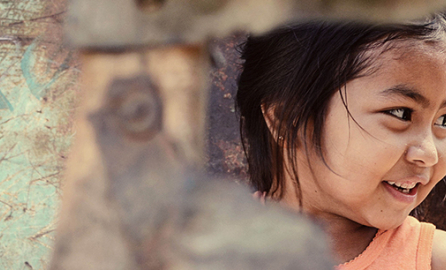Women in Nicaragua face high rates of gender-based violence, with 80% of all reported acts of sexual violence being committed against girls.
Tackling the problems of gender, from violence to economic exclusion, must start with the acknowledgement of fundamental human rights, said Michele Dospital, Programme Manager and Gender Focal Point at the EU Delegation to Nicaragua.
"A lot of this violence comes from stereotypes propagated from childhood through to adulthood,” she added.

The women’s rights situation in Nicaragua is challenging, with the strong persistence of negative gender stereotypes. Photo © Alexander Schimmeck/Flickr
The EU development cooperation in Nicaragua focuses on three sectors:
- education for employment
- support to the productive sector and
- adaptation to climate change
|
What is the GAP II? The EU Gender Action Plan 2 (GAP II) provides the framework for the European Commission, the European External Action Services and the EU Member States in their approach to gender equality through external action. Its implementation is mandatory for all external relations of the EU and an implementation report of the GAP II is produced every year to monitor the achieved progress. For more about GAP go here |
Since 2016, with the adoption of the EU Gender Action Plan 2016-2020 (GAP II), gender has become a a transversal component in all EU cooperation interventions.
Another key area of work of the EU Delegation is the defence of human rights – but this has proven challenging.
“Since 2018, there has been an increase in violence at all levels,” Dospital said. “And that means that violations of women's rights have become invisible, making women more vulnerable.”
To defend the promotion of gender equality and women’s rights, Dospital added, “it is important that the Delegation’s staff themselves are clear about what it means. Everything depends on the conviction, the will and the people's openness”.
In 2018, the EU Delegation organised a team-building event around the GAP II – to start addressing negative stereotypes within the Delegation itself, and in turn, to prioritise the gender component in engagements with local and international partners.
Michele Dospital on the outcomes of the team-building exercise: (in French, with English subtitles):
“For the fight against gender-based violence to truly progress, there is a need for both strong laws and a vibrant civil society to uphold the principles of gender equality,” Dospital said. “This can only be done with the government on board.”
In April 2018, Nicaragua was hit by a political crisis, putting the future of a lot of EU development cooperation in question.
“Despite the GAP II, it is clear that when we are in a country in crisis, the improvements we have made in women's rights are fragile and can easily be reverted,” Dospital said.
“Therefore, it is essential to continue promoting and defending human rights with a very special attention towards women's rights, due to their high vulnerability.”
Watch the highlights of the Delegation’s team-building exercise here.
|
Additional resources: Joint Staff Working Document "Gender Equality and Women's Empowerment: Transforming the Lives of Girls and Women through EU External Relations 2016-2020 (GAP II)" Capacity4dev Public Group on Gender DEVCO Academy Gender Page Sustainable Development Goal 5 "Achieve gender equality and empower all women and girls" |
This article was written by Craig Hill / Photo credit: Keely Joy Photography



Log in with your EU Login account to post or comment on the platform.